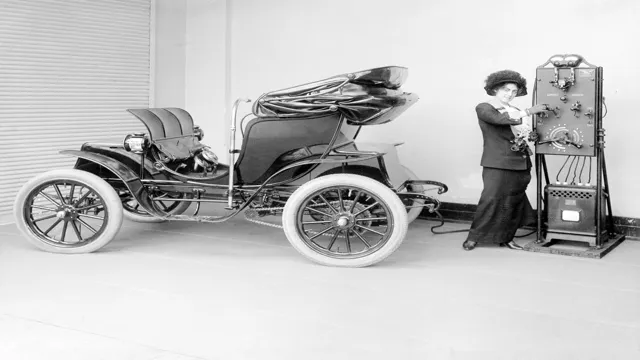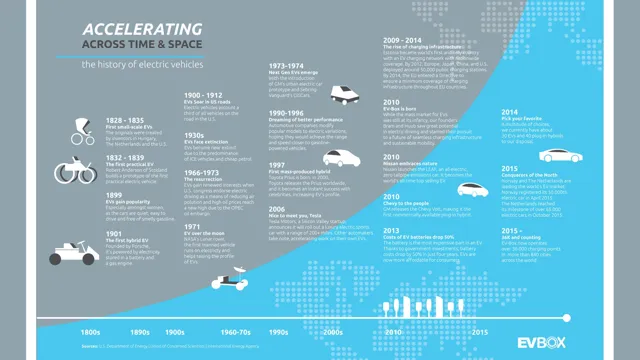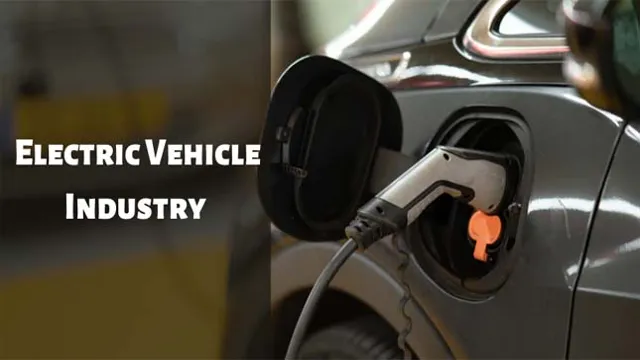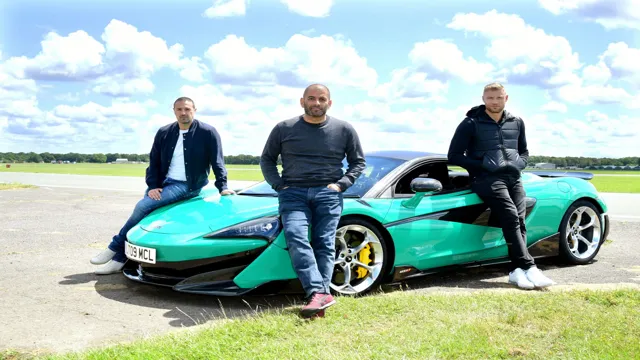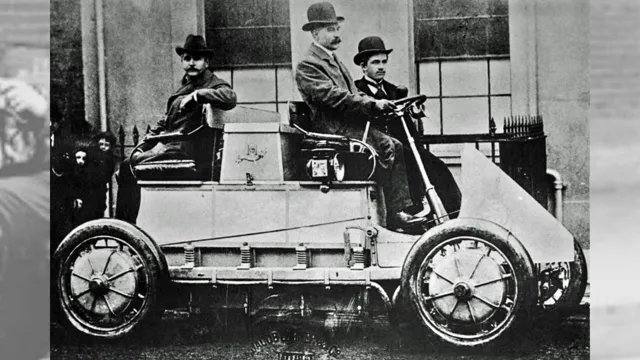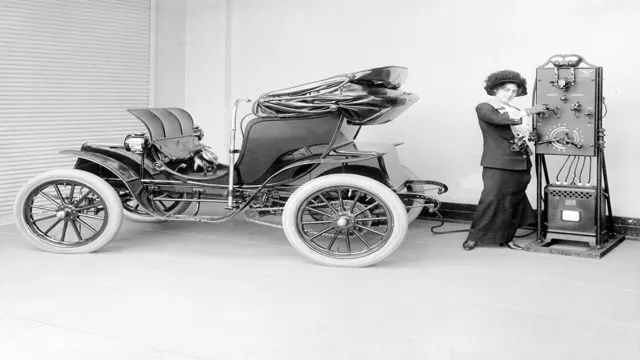The Evolution of Electric Cars: Tracing the Fascinating History of their Development
The development of electric cars has taken the automotive industry by storm, with more and more manufacturers striving to create sustainable and eco-friendly vehicles. The shift towards electric cars comes at a time when the world is focusing on reducing its carbon footprint and increasing its use of clean energy. As a result, traditional gas-guzzling cars are becoming less popular, and electric cars are quickly becoming the norm.
Electric car development offers a unique opportunity to revolutionize the automotive industry and help protect the environment. But what does this mean for consumers and the future of driving? Let’s explore the exciting world of electric car development and what it means for the automotive industry moving forward.
Early Experimentation
Electric car development history goes back much further than most people realize. In fact, experimentation with electric-powered vehicles dates back to the early 1830s. During this period, inventors across the globe started exploring the possibilities of electric propulsion and began building small-scale prototypes to test their theories.
However, due to the limited technology available at the time, these vehicles were unable to compete with the faster, more powerful gasoline alternatives that were beginning to emerge. During the late 1800s, further development of electric vehicles began in earnest, with inventors like Thomas Parker and Ferdinand Porsche making significant strides in electric drivetrain technology. Though electric vehicles still faced stiff competition from the growing popularity of gasoline-powered cars, these early experiments paved the way for the development of electric vehicles as we know them today.
And now, with advancements in battery technology and a growing concern for the environment, electric cars are becoming more and more popular as an eco-friendly alternative to traditional gas-guzzlers.
Inventors and Innovators
The early experimentation phase of inventors and innovators was characterized by trial and error, persistence, and determination. These individuals were driven by a desire to solve problems and make life easier for people. Some of the greatest inventions in history came about through experimentation and the willingness to try something new.
Take Alexander Graham Bell, for example. He spent countless hours tinkering with the design of the telephone until he finally came up with a device that could transmit sound. His dedication and commitment to his work paid off, and the telephone completely revolutionized communication.
Other notable inventors during this period include Thomas Edison and Nikola Tesla. Both men were known for their experimentation and willingness to push boundaries. Edison famously tried thousands of different materials before finding the right material for the filament in his light bulb.
These early inventors and innovators paved the way for future generations and continue to inspire us today.
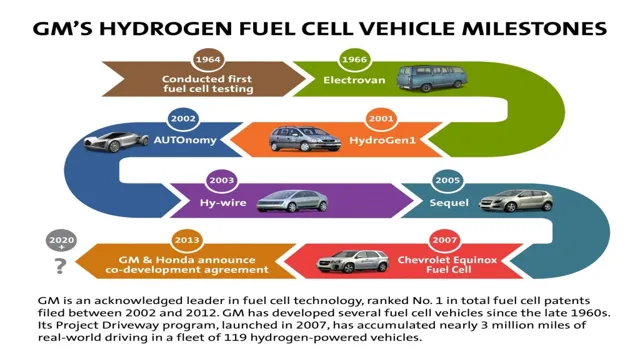
First Electric Vehicles Sold in the US
The first electric vehicles sold in the US were a product of early experimentation, as inventors sought to find more environmentally-friendly means of transportation. Many of the earliest electric cars were designed for short distances and low speeds, making them ideal for city driving. Despite their limitations, these vehicles gained popularity and were even used by prestigious clientele such as Thomas Edison and Henry Ford.
However, the rising popularity of gasoline engines eventually led to a decline in the production of electric vehicles. Nevertheless, recent advancements in battery technology and the growing need for eco-friendly transportation options have led to a resurgence in the electric vehicle market. As sustainable energy becomes increasingly important, it is clear that these early experiments paved the way for the electric cars we know today.
Revival in the 90s
In the 90s, there was a revival of the electric car development history, and this marked the beginning of a new era for the automotive industry. This resurgence was mainly fueled by the California Air Resources Board’s (CARB) mandate requiring automakers to produce a certain percentage of zero-emission vehicles. This led to the creation of electric cars such as GM’s EV1, Toyota’s RAV4-EV, and Ford’s Ranger EV, which gained popularity among consumers.
However, the promising future of electric cars came to an abrupt halt when CARB withdrew its mandate in the mid-2000s, and many automakers stopped producing electric vehicles. Despite this setback, the electric car development history continued to evolve, and advancements in technologies such as batteries, motors, and charging infrastructure have made electric cars more reliable and practical than ever before. Today, electric cars are gaining more mainstream acceptance, and major automakers are announcing their plans to transition to electric-only lineups within the next few decades.
As we look back on the electric car development history, it’s clear that we’ve come a long way, and the future looks bright for electric cars.
California’s Zero-Emissions Vehicle Mandate
The 1990s brought about the revival of California’s zero-emissions vehicle mandate, which required automakers to have a percentage of their cars produce zero emissions. This mandate was initially established in the 1960s but was never enforced until the 90s when California saw a rise in air pollution due to exhaust fumes. The revival of this mandate was a much-needed step towards combating the negative impact of gas-powered cars on the environment.
Automakers initially opposed the mandate, citing logistical and financial challenges, but eventually, they complied because California was a significant market for them. As a result, car manufacturers started producing electric and hybrid vehicles that run on alternative fuels like hydrogen and electricity. The revival of the zero-emissions vehicle mandate led to significant technological advancements in the automotive industry, which further helped reduce air pollution and greenhouse gas emission levels.
Today, California’s zero-emissions vehicle mandate continues to be a crucial step in mitigating climate change and promoting a sustainable future.
GM’s EV1 and its Demise
The 90s marked an era of innovation and change in the automotive industry with General Motors leading the way with its release of the revolutionary electric car, the EV The EV1 was a sleek, aerodynamic vehicle that was ahead of its time, offering a more sustainable and eco-friendly alternative to traditional gas-powered cars. This sparked a wave of excitement and intrigued among consumers, culminating in a waiting list that spanned across multiple states.
However, despite its initial success, the EV1 met an untimely end, much to the disappointment of its loyal supporters. Many theories suggest that it was due to political pressure, lack of profitability, and the rising popularity of gas-guzzling SUVs. Nevertheless, the EV1 left a lasting impact on the automotive industry, paving the way for future electric vehicles and fostering a new era of environmentally conscious transportation.
Toyota’s Hybrid Prius and its Impact
The Toyota Prius, the world’s first mass-produced hybrid car, made its debut in Japan in 199 At the time, the concept of a car that ran on both electricity and gasoline seemed far-fetched and unachievable. However, Toyota’s commitment to innovation and sustainability was unyielding, and they worked tirelessly to make the Prius not only a reality but a success.
The Prius gained popularity in Japan, and in 2000 it made its debut in the United States. Initially, it was met with skepticism, with many people questioning the practicality, reliability, and affordability of the hybrid car. However, as gas prices surged and concerns about global warming and air pollution grew, the Prius became more appealing.
Today, the Prius is a household name and is admired for its fuel efficiency, low emissions, and sleek design. It has paved the way for other hybrid and electric cars, and its impact on the automotive industry and the environment is immeasurable.
Modern Times
Electric car development history is a fascinating topic that spans over a century. Modern times have brought about a significant shift in how we perceive electric cars, as they have become more mainstream and adopted by some of the world’s biggest car manufacturers. The roots of electric cars date back to the late 1800s, with the first electric vehicle developed in 1832, followed by the 1899 La Jamais Contente, which broke the speed record at 65mph.
However, after the emergence of gasoline-powered vehicles, electric cars fell out of favor due to their limited range and speed. It wasn’t until the 1990s that electric car development began to pick up again, with advancements in battery technology and electric motors. Tesla’s introduction of the Roadster in 2008 marked a significant milestone in electric car development, bringing electric cars into the luxury market.
From there, manufacturers like Nissan, Chevy, and BMW followed suit, creating electric cars with ranges capable of 200-300 miles, making them far more practical for everyday use. Today, electric cars continue to evolve, and we are seeing more affordable models entering the market, further driving the shift towards electric cars as a sustainable mode of transportation.
Tesla’s Influence and Success
In modern times, it’s hard to imagine the world of electric cars without considering the influence and success of Tesla. With their sleek designs, advanced technology, and eco-friendly focus, Tesla has become a powerhouse in the automotive industry. Their Model S, Model X, and Model 3 cars have all been incredibly popular choices for those looking for a vehicle that is both stylish and efficient.
Perhaps the most impressive aspect of Tesla’s success is the fact that they’ve managed to make electric cars attractive to a broader audience and not just eco-enthusiasts. Thanks to Tesla’s innovations, we can all enjoy the benefits of electric cars without sacrificing style and luxury. It’s clear that Tesla’s future looks bright, and we can’t wait to see what they come up with next.
Development of Charging Infrastructure
With the increasing popularity of electric vehicles, the development of charging infrastructure has become more crucial than ever before. Modern times have seen a significant step forward in the innovation of charging infrastructure, with the introduction of smart charging networks and wireless charging technology. Smart charging networks make use of cloud-based solutions to optimize charging times, making the charging process more efficient and cost-effective.
These networks also make it possible to manage the large volumes of data generated by EVs, allowing for better monitoring and control of the charging process. Additionally, wireless charging technology has been gaining popularity as a convenient and easy-to-use alternative to traditional charging stations. This technology uses magnetic fields to transfer energy wirelessly to an EV’s battery, eliminating the need for cables and improving accessibility.
Overall, these developments in charging infrastructure are paving the way for a future where electric transport is not only feasible but also highly convenient for all.
Future Prospects and Challenges
Looking into the future of electric car development, it’s exciting to see the advancements that have been made over the years. From early prototypes with limited ranges to models that can travel hundreds of miles on a single charge, the electric car has come a long way. With a growing demand for sustainable transportation options, it’s clear that the electric car market will continue to expand.
However, there are also challenges to be addressed, such as the availability and affordability of charging infrastructure. Additionally, the mining and disposal of electric car batteries raises concerns about environmental impact. As we continue to innovate in the electric car industry, it’s important to prioritize sustainability and consider the full life cycle of these vehicles.
Nonetheless, with the progress made so far, there’s no doubt that the electric car industry is set for an exciting and sustainable future.
Conclusion
In conclusion, the history of electric car development can be summarized as a rollercoaster ride of innovation, setbacks, and extraordinary breakthroughs. Starting from humble beginnings in the early 19th century, electric vehicles have come a long way to become a viable and sustainable alternative to gas-guzzling machines. While there have been bumps along the road, such as the dominance of the internal combustion engine and issues with battery technology, recent advancements in electric car design and manufacturing have propelled us into an age of energy-efficient and environmentally-friendly transportation.
From the humble beginnings of battery-operated trams to the futuristic, Tesla-inspired models of today, electric cars have proven that the power of innovation knows no bounds. So, on your next drive through the city, keep your eyes peeled for these silent yet powerful marvels of modern engineering, because the electric car revolution is here to stay!”
FAQs
What was the first electric car?
The first electric car was built in 1837 by Robert Anderson in Scotland.
When did electric cars become popular?
Electric cars were popular in the early 1900s, when they made up about one-third of all cars on the road.
What caused the decline of electric cars in the early 20th century?
The discovery of Texas crude oil and the widespread use of the gasoline engine caused the decline of electric cars in the early 20th century.
When did the modern electric car era begin?
The modern electric car era began in the 1990s, with the development of the General Motors EV1 and the launch of the Toyota Prius.
What advancements have been made in electric car technology in recent years?
Recent advancements in electric car technology include longer battery life, faster charging times, and expanded charging infrastructure.
